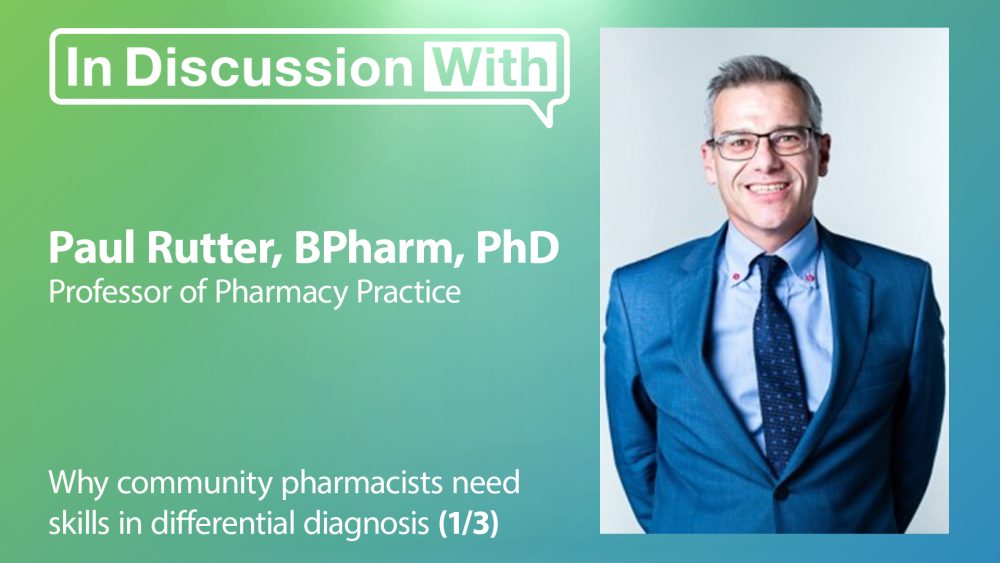Advertisment
Why community pharmacists need skills in differential diagnosis

Paul Rutter is Professor of Pharmacy Practice at Portsmouth University and the author of a best-selling textbook on symptoms, diagnosis and treatment in community pharmacy. His new book on differential diagnosis promises to support non-medical prescribing and “fill a gap”. IMI spoke to Professor Rutter to find out more.
Professor Rutter’s main area of interest is differential diagnosis of minor conditions for pharmacists. His own career started in community pharmacy where he says he “really enjoyed interacting with patients”. He became a teacher/practitioner with Boots the Chemist and found that he also enjoyed teaching. He gained a PhD and started his academic career at Portsmouth University. After spells at Wolverhampton University and the University of Central Lancashire he returned to Portsmouth to take up the post of Professor of Pharmacy Practice.
Professor Rutter is probably best known for his book on symptoms diagnosis and treatment in Community Pharmacy, now in its fifth edition. His new book, Differential diagnosis for non-medical prescribers, nurses and pharmacists: A case-based approach, is intended to fill a gap that is not covered by the earlier book. As the scope of practice for community pharmacists expands, skills in differential diagnosis of signs and symptoms will become increasingly important, he says. “We all know that we’re going to have a prescribing workforce – by 2026 all [pharmacy] graduates will have that IP (independent prescribing) qualification and this book is trying to address that extended role for pharmacy”, he explains. The book uses a case-study format and emphasises the importance of clinical reasoning to reach a diagnosis.
Hitherto, pharmacists have relied on the WWHAM (or 2-WHAM) mnemonic to guide consultations. WWHAM stands for:
- Who: Who is the medicine for?
- What: What are the symptoms?
- How long: How long have the symptoms been present?
- Action: What action has been taken?
- Medication: Are you taking any other medication?
Although WWHAM elicits some information from patients it is not a good diagnostic tool. “If you think about the questions that it asks, at least two of those five questions are more to do with management and treatment planning rather than the diagnosis so it doesn’t actually ask many questions to establish the differential diagnosis”, says Professor Rutter. The role of pharmacy in the community has now developed further. “Because we are now being expected to do a lot more in pharmacy, we need to adopt new ways of thinking and new ways of getting information from the patient – and that’s where clinical reasoning comes in”, he explains. The new book is focused on the use of clinical reasoning in order to establish a differential diagnosis, he adds.
WWHAM still has a place – ideally it is a tool that should be used by pharmacy counter assistants to obtain basic information that can be given to a pharmacist prior to a consultation, says Professor Rutter.
About Paul Rutter
Paul Rutter is Professor of Pharmacy Practice at Portsmouth University. His main area of interest is differential diagnosis of minor conditions for pharmacists and his academic teaching deals mainly with this topic. He is the author of the textbook, Symptoms, Diagnosis and Treatment in Community Pharmacy, now in its fifth edition. His new book, Differential diagnosis for non-medical prescribers, nurses and pharmacists: A case-based approach, was published in August 2024.
Read and watch the full series on our website or on YouTube.
This episode of ‘In Discussion With’ is also on Spotify. Listen to the full podcast now.






